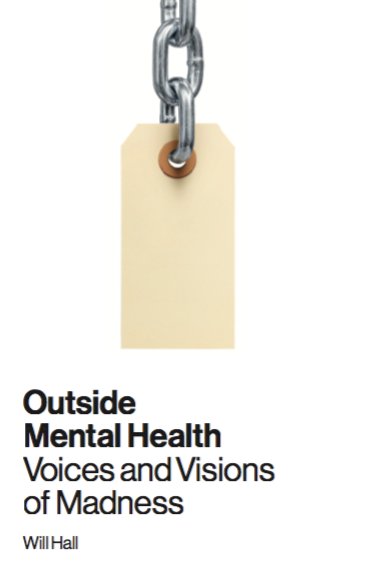Prison Mental Health: Terry Kupers
First Aired: 03-02-2010 -- 5 comments | Add comment

The US incarcerates more people than any country in the world – and 70% are people of color. Do we need better mental health care inside prisons — or do prisons themselves cause trauma and madness?
Psychiatrist and civil lawsuit expert witness Dr.Terry Kupers, author of Prison Madness: The Mental Health Crisis Behind Bars and What We Must Do About It, discusses overcrowding, racism, sensory deprivation, isolation, and sexual abuse in the disgraceful US prison system.
http://www.afsc.org/stopmax
http://www.criticalresistance.org
http://www.aclu.org/prisoners-rights
Podcast: Play in new window | Download (Duration: 52:29 — 48.1MB)
Subscribe: RSS





























 Creative Commons 2.5 copyright
Creative Commons 2.5 copyright
🙂
This interview with Terry Kupers is especially helpful and insightful.
Before Madigan Shive (another guest on Madness Radio) introduced me to the world of mental health advocacy in 2002, I used to do a lot of prisoner support and activism as a volunteer. I remember when Terry Kupers spoke at a Prison Activist Resource Center educational forum in 2000, shining a light on the horrific, systemic abuses realities faced by mental health clients/survivors warehoused in the prison system. By the end of his presentation I was so overwhelmed about the way the prison system was destroying the bodies and minds and crushing the spirits of people like me and my friends, I was moved to tears.
No one else there seemed to fully understand why Terry’s “big picture” take on what was happening to mental health clients/survivors in prisons affected me so personally. Most of my friends, like me, were people who had been diagnosed with “serious and persistent mental illnesses”, and most had also been criminalized for being young, queer, trans, people of color, sex workers, activists, etc. Increasingly my friends were getting locked up in psychiatric facilities, jails and prisons, where they were getting drugged, abused, sexually assaulted and re-traumatized. Prisoners labeled “mentally ill” are often targeted for abuse by fellow prisoners and correctional officers alike, and this abuse is only compounded for prisoners of color, trans, gender-variant, queer or HIV-positive prisoners. Meanwhile, prison reform advocates rarely seemed to grasp the prison environment’s impact on these prisoners’ mental health beyond their DSM labels and professionals’ assurances that people with these diagnoses need access to treatment (primarily psychotropic drugs), which they were often denied or were doled out in a way that compromised their confidentiality.
What the other prison reform advocates seemed to miss – and what so many mental health advocates unfamiliar with the world of prisons continue to overlook – was how, as Terry Kupers says, the prison industrial complex tortures and traumatizes people and creates madness, even while it targets people who hear voices, experience mood swings and extreme states, and re-traumatizes survivors of violence and abuse.
It was only hearing your interview with Terry ten years later that finally brought some clarity to this experience for me, reinvigorating a long-neglected dialogue by examining and discussing the prisons’ impact on prisoners from the perspective of the mental health client/survivor movement. As the host, you did so with great sensitivity; when Terry illuminated policy issues like solitary confinement, sexual assault, trauma, and secrecy, you then explored some possible solutions.
After hearing that show, rather than simply feeling overwhelmed and afraid, I felt hopeful that this could be the first step in a series of actions that the mad pride movement can take to break out of our mental health silos and change the way our folks are being treated behind bars. I only hope that other mental health advocates and mad activists will listen to this episode. Our movement needs a platform and an action plan on prison issues.
Fantastic Delphine – great to hear from you. I too have felt overwhelmed by the prisons and mental health issue, and the intersection of classism and racism prison’s represents. Adding to my despair was the lack of clear voices who really covered all the social justice aspects of the issue, not just taking a medica model framework and calling for better treatment behind bars. Terry’s work manages to put it all together. Though he uses the “illness” language he is someone who understands the social construction of mental health and the justice issues that drive people crazy. I’m also hopeful that mental health advocates and the consumer movement can get out of our silos and do more coalition work on this issue.
“The US incarcerates more people than any country in the world”…
I’m not sure about that… Do you know China?
I work hard to make sure that the research presented on Madness Radio is solid and based on verifiable sources. If there is any error I am happy to publish a correction, but Terry has got his facts correct here.
A quick google check confirms multiple mainstream sources agreeing with the incarceration rates Terry referred to, even taking into account China. Sources include the New York Times, Washington Post, US Department of Justice, Associated Press, US General Accounting Office, International Centre for Prison Studies, Pew Center on the States, etc.
An excellent article worth checking out was in the New York Review of Books recently: “The American Prison Nightmare” http://www.nybooks.com/articles/20056
It’s a shocking fact, but a fact nonetheless: the US has the highest incarceration rate in the world, and the composition of its prisons is extremely racially biased. Prison injustice is at the heart of social injustice in the US, and is a direct descendent of the legacy of slavery.
Sadly, the problems with the US criminal justice system are so deep that this hour long interview could only scratch the surface. I encourage people to take the time to read Terry’s book, do some of their own learning and investigation, and become part of efforts at US prison reform.
— Will